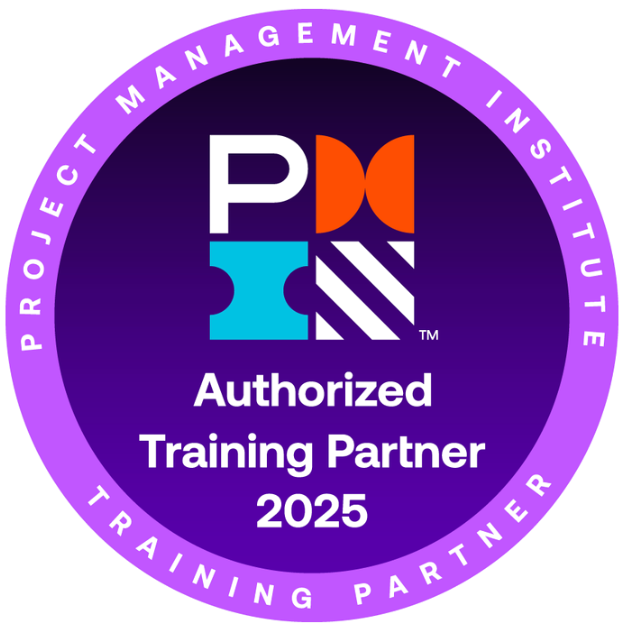How Many Hours Do You Really Need to Study for PMP®?
The Project Management Professional (PMP®) certification is a prestigious credential that opens doors to high-level project management roles worldwide. But the path to becoming PMP® certified isn’t as simple as just filling out an application. You need to prepare for an exam that covers a vast amount of knowledge, from project scope management to risk control, and everything in between. So, how many hours should you really spend studying to increase your chances of passing the PMP® exam on your first try?
Let’s break it down so you can map out a study plan that fits your schedule and learning style.

The PMP® Exam: What’s in the Box?
Before determining how many hours you need to study, let’s quickly take a look at the PMP® exam content. The exam consists of 180 questions (multiple-choice, multiple responses, matching, and fill-in-the-blank), covering the five project management process groups outlined in the PMBOK® Guide (Project Management Body of Knowledge):
- Initiating
- Planning
- Executing
- Monitoring and Controlling
- Closing
- In addition to the PMBOK® Guide, you will also be expected to have a solid understanding of Agile practices as they are now integrated into the exam.

How Many Hours Do You Really Need?
The number of study hours needed to prepare for the PMP® exam depends on several factors, including your existing knowledge, work experience, and how well you retain information. However, most candidates spend anywhere between 150 and 300 hours preparing for the exam.
Here’s a general guide to help you figure out where you fall:
1. If You Have Minimal Project Management Experience (0-2 Years)
If you’re relatively new to project management, it may take you closer to the 300 hours mark to feel fully prepared. This is because you will need to learn the foundational knowledge of project management practices and familiarize yourself with the terminology, tools, and techniques used in the industry.
Recommended Study Timeframe:
- 4 to 6 months of study, around 10-12 hours a week.
- Focus on understanding the basic concepts of each process group and their inputs, tools, techniques, and outputs (ITTOs).
2. If You Have Moderate Experience (3-5 Years)
With a few years of experience managing projects, you might be more familiar with the concepts and processes required for the PMP® exam. In this case, expect to spend 200-250 hours preparing.
Recommended Study Timeframe:
- 3 to 5 months of study, averaging 8-10 hours a week.
- Focus on honing your knowledge of PMBOK® Guide processes, Agile principles, and exam strategy.
3. If You Have Extensive Project Management Experience (5+ Years)
f you’ve been a project manager for a while, you may already have a strong grasp on many of the concepts tested on the exam. Still, the PMP® exam goes into considerable depth, so you’ll need to spend time reviewing specific topics, especially when it comes to exam-specific details like ITTOs and situational questions. In this case, 150-200 hours of study should be sufficient.
Recommended Study Timeframe:
- 2 to 3 months of study, around 6-8 hours per week.
- Focus on refining your knowledge and practicing with exam simulations and mock tests.

How to Maximize Your Study Hours
While the number of hours you put in is important, how you use those hours is equally crucial. Here are some strategies to make every study session count:
1. Use the PMBOK® Guide as Your Main Resource
The PMBOK® Guide is your Bible when it comes to PMP® preparation. Get comfortable with its structure, understand the processes, and memorize the ITTOs (Inputs, Tools & Techniques, and Outputs). It’s not just about rote memorization — it’s about understanding how the components fit into the larger project lifecycle.
2. Take PMP® Exam Prep Courses
Consider enrolling in a PMP® exam prep course, either in-person or online. These courses typically offer structured learning, practice exams, and personalized coaching, which can be a great way to stay on track with your study schedule.
3. Use Practice Exams & Simulators
The PMP® exam is known for its tricky, situational questions, and the best way to prepare for them is by taking as many practice exams as possible. These exams help you get familiar with the question style and manage time effectively.
4. Focus on Weak Areas
Identify areas where you feel less confident and devote more time to reviewing those sections. Whether it’s risk management, procurement, or stakeholder engagement, make sure you address your weak spots early on.
5. Study with a Group or Study Buddy
If you're someone who thrives on collaboration, consider joining a study group or partnering with a study buddy. This will keep you motivated, hold you accountable, and help you cover more material by discussing topics together.
6. Stay Consistent
PMP® prep is a marathon, not a sprint. Make studying a consistent part of your weekly routine, and try to spread out the learning over time. Cramming isn’t effective for an exam of this magnitude.

The Final Countdown: Week Before the Exam
As the exam approaches, use the last week to review key concepts, take one or two full-length practice exams, and familiarize yourself with the test format. Avoid learning new material during this final stretch. Instead, focus on reinforcing what you already know.
Conclusion: Be Realistic and Consistent
In the end, the number of study hours required to pass the PMP® exam is subjective. A candidate with extensive experience may only need 150 hours, while someone newer to project management may need closer to 300 hours. The key is consistency, practice, and understanding the concepts deeply.
By planning ahead, staying organized, and using your study time efficiently, you’ll be well on your way to earning your PMP® certification and advancing your project management career.



